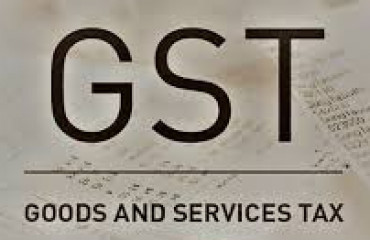
The goods and services tax (GST) compensation cess expiring in March 2026 or before may be replaced with a new levy, if the GST Council feels more revenue is needed, two officials aware of discussions between the Centre and states said.
The goods and services tax (GST) compensation cess expiring in March 2026 or before may be replaced with a new levy, if the GST Council feels more revenue is needed, two officials aware of discussions between the Centre and states said.
The cess, which is levied on products in the 28% GST slab such as aerated drinks, tobacco and automobiles, was meant to compensate states for their revenue losses in the first five years of GST till June 2022. It was extended till March 2026 to repay a ₹2.69 trillion debt raised by the Centre when the cess collection was not sufficient to pay the states during the pandemic years.
The cess may end even before March 2026 if the Centre is able to prepay the debt. "If before March 2026 we are able to pay all the loans and pay some of the compensation due to be paid because of non-receipt of audited figures from some of the states, the compensation cess cannot be levied beyond that," one of the persons cited above said on condition of anonymity.
"Products like tobacco and automobiles currently attracting cess over and above 28% GST cannot have GST 'compensation' cess after that. The GST Council will decide what is to be done after the compensation cess is removed... It can continue in some other form, no doubt," the person added.
The second person said that the constitutional guarantee to compensate states for revenue loss was only for the first five years of GST, and the extension of cess was done by a law as a special dispensation.
"The term GST 'compensation' cess will be a misnomer in the future. If more revenue is to be raised, there can be higher GST rates. These are issues to be decided by the council," said the person, who also spoke on condition of anonymity.
Queries sent to the GST Council and the spokesperson for the finance ministry remained unanswered at the time of publishing.
The second person added that the GST Council will need to decide whether higher tax rates or another levy replacing the compensation cess will require a constitutional amendment or only an amendment to the law. In the event of any reduction in the tax outgo on these products, the Competition Commission of India (CCI) will look into issues of profiteering, the person said.
Experts said after the compensation cess expires, a tax rate adjustment or shifting certain goods into a higher tax slab may be an easier way to mobilize any additional revenues required. "Of course, there has to be a greater scrutiny in choosing commodities for any tax rate increase so that the poor and middle class are not adversely impacted," said R. Muralidharan, a practising lawyer and indirect tax expert.
"Measures to enhance compliance and arrest tax leakages will also help in improving GST revenues. If these are not sufficient to mobilize the required revenues, another option is to go in for a rationalization of the GST rates for select commodities," he added.
In the current fiscal year, the Centre is expected to collect ₹1.45 trillion in compensation cess, up 15% from the year before, as per interim budget estimates.
A third person, who also spoke on condition of not being named, said the 16th Finance Commission led by Arvind Panagariya will look into the future of GST compensation cess, since it is a revenue source that can be deployed for development or welfare.
The commission has time till October 2025 to give its report. The 15th Finance Commission had earlier proposed GST rate rationalization as a medium-term reform goal, an issue that is still before the council.
The current rate of the cess varies—from 1% for vehicles running on petrol, compressed natural gas (CNG) or Liquefied petroleum gas (LPG) meeting certain conditions, to 22% in the case of sports utility vehicles, to as high as 290% for certain smoking mixtures for pipes and cigarettes
